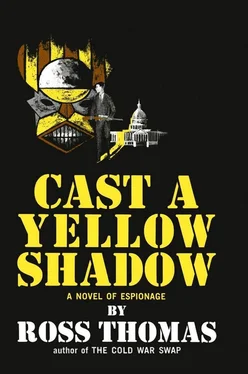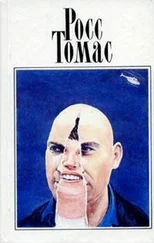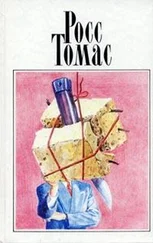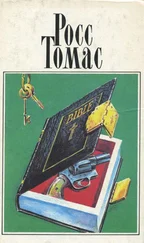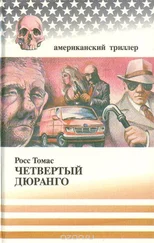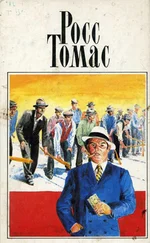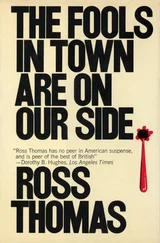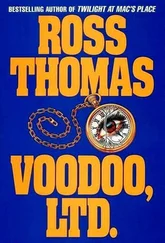“An hour; maybe two. It depends upon how well I lie.”
“Call me at the apartment. We’ll have dinner.”
“Good.”
Padillo got in the Corvette and drove off. I gathered up the cups and the brandy bottle. “Can you put these in that purse of yours along with the gun?”
“It’s a very small gun.”
“Nothing worries me more than a small gun, unless it’s an unloaded one.”
She wanted me to drive so I did. We came out on P Street and I drove east.
“Will you tell me about it, please?” she finally asked. “About all of it? I’m terribly sorry about your wife, but I have to know what Dad was doing when he died. I have to know if it makes any sense.”
“I can tell you about that right now,” I said as I turned into the basement garage. “None of it makes any sense.”
I got her suitcase out of the back seat and we took the elevator up to my apartment. I showed her the guestroom and bath and said that I would be in the livingroom. She came in a few moments later, looking a little less tired, or maybe she had done something to her face. She was an extremely pretty girl and without her topcoat the rest of her complemented her long slender legs. I asked her if she wanted a drink and she said no, she would like a cup of coffee so I went into the kitchen and heated the water and smoked a cigarette while I waited for it to boil. There was a coffeepot some place, but we never used it. Fredl had grown up on black-market American instant coffee and she insisted it was better than the ground variety. It was one of the major compromises of our marriage.
After Sylvia Underhill took her first sip of coffee I told her about what had happened to her father and what he had wanted us to do.
“And you agreed to do it?”
“Yes.”
“But after he was dead, you didn’t have to.”
“That’s right.”
“You could have kept the money and just forgotten about it.”
“We could have kept the money,” I said.
“He wasn’t cut out for this,” she said.
“Few people are.”
“Are you?”
“No.”
“Is Mr. Padillo?”
“He’s had practice.”
“He seems a strange man. I read the dossier that my father got some place. Has he really done what it says — I mean, all of those things?”
“I haven’t seen the dossier, but Padillo has had what could be called a full life.”
“You’ve known him a long time, haven’t you?”
“Yes.”
“I don’t think I would ever know what he was really thinking. Does he do all these things because he believes in them or because he enjoys doing them or why?”
I looked at my watch. It was six-thirty. It seemed time for the cocktail hour. “You sure you wouldn’t like a drink?”
“No thank you.”
“I think I’ll have one.”
“All right.”
I walked over to the bar and mixed a vodka martini. “Padillo has had one ambition in life from the time he was sixteen years old, and that is to run a nice quiet saloon. It’s something that we have in common. But he was born with three handicaps for a saloon-keeper: an extremely quick mind, an unusual gift for languages, and superb muscular control — far better than most athletes. He didn’t work at any of these; they just happened to him, just as you happened to turn out to be an extremely pretty girl.”
“Some people found out that all these handicaps were wrapped up in one man, so they used them — much as they would use a lawyer or a surgeon. When they learned that something was wrong somewhere, they would send Padillo in to fix it. He did it not because he wanted to do it, but because it was the price he paid for being allowed to do what he really wanted, and that’s to run a saloon. He would have liked to have run one in Los Angeles, but it never worked out.”
“When you speak of some people, you’re talking about your government.”
“No. I’m speaking about some people. They work for the government and they’re caught up in their ambitions and their convictions and the power of decision and command that they’ve acquired. They would use Padillo to fix things that they thought needed fixing.”
“He killed people, the dossier said.”
“I suppose he did.”
“Because these people in government told him to?”
“Yes.”
“Were they always right?”
“Probably not.”
“Then he killed innocent people?”
“He killed people who were very much like himself, I’d say — as innocent or as guilty. They were chosen to die because somebody in our government thought that the world would be a better place to live if they weren’t around any more. Perhaps they thought it would make a difference, and maybe the world did get better for them because they received a promotion or a discreet commendation. But it didn’t change things much for the rest of us.”
“And it was someone like that in my country’s government who decided that my father should die.”
“Probably. They wrapped it up in patriotism, their own brand, and tied it up with their own convictions, and your father was killed. Those who killed him consider it progress. For you it’s a senseless tragedy because your father’s death seems meaningless. Most deaths are.”
“But Van Zandt’s death would have a purpose.”
“He thinks so and so do those who support him. He thinks it will change history and give him a share of immortality. Those who support him think it will make the world a better place to live — for them.”
“There’s something that bothers me,” she said. “Why are you going to do what my father asked you to do? Why don’t you just do what they wanted you to do and get your wife back and then just forget about it? You seem to be able to take death so very casually.”
“How long do you think they would let my wife live after it was over?”
“I don’t know. Would they kill her?”
“I think so.”
“What are you going to do?”
“Try to get her back.”
“And if you don’t?”
“I don’t know,” I said. “I haven’t thought about that yet. I don’t think that I can.”
Karl didn’t flick an eye when I walked in with Sylvia Underbill on my arm. It was that kind of place. We took a broad view of everything.
“Padillo here yet?”
“He’s in back.”
“Call him and tell him I’m here. Which table?”
“Thirty-two, in the corner,” Karl said. “Drinks?”
“We’ll wait for Padillo.”
We followed one of the waiters over to the table that I had asked to be reserved after Padillo had called me from his hotel. The waiter helped Sylvia with her chair and hovered around a bit more than usual because she was with the owner. Padillo came out from the back and crossed the room quickly, counting the house as he came. We were full and those without reservations were lining up at the bar. The customers liked the bar for its generous drinks, its fast service and Karl’s knowledgeable gossip about Washington. He served a quick, bright line of chatter that just bordered on slander. It provided an interesting contrast to Herr Horst’s meticulously correct formality.
“How’d it go?” I asked after Padillo was seated and had said hello to Sylvia.
“I didn’t remember how well I can lie.”
“They went along?”
“Take a look at the bar — the third and fourth seats from the end.”
I waited a few moments and then looked around, as if for a waiter. Two men in their early thirties sat at the bar, half-turned to the room, trying to look unremarkable. They succeeded. Each had a bottle of beer and a half-full glass at his elbow. They didn’t seem thirsty or worried about the beer going flat.
“The two nursing the beers?” I asked.
Читать дальше
